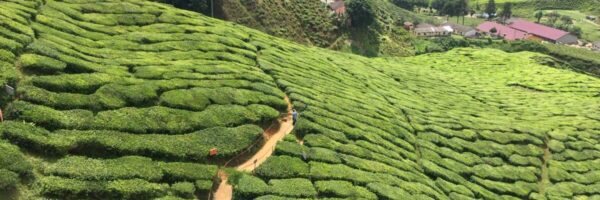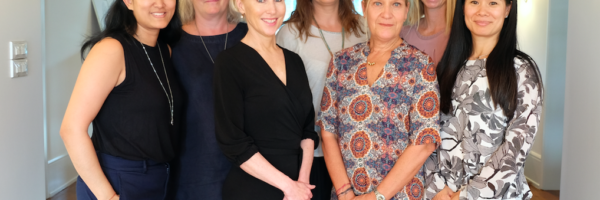
Detoxing your way through the Land of Smiles
Living as an expat in Thailand one can feel like they are living in the lap of luxury with the large variety of cuisine, inexpensive massages and facials, and easy access to some of the finest beaches in the world. But it can also feel claustrophobic at times, particularly when the pollution levels are at their highest. Bangkok being the concrete jungle that it is, we are exposed to both manmade and natural toxins on a daily basis – regularly sprayed pesticides, exhaust fumes, old copper pipes, plastic water bottles, to name a few. On top of this, our senses are constantly being over stimulated by video screens in the BTS and on bulletin boards, loud noises from endless construction, wifi, and the smells/fumes from street food stalls. Many of the chemicals we are exposed to both inside our homes and outdoors contain endocrine disruptors – meaning that they can interfere with our hormones leaving us feeling less than our optimal selves.
Love your liver!
Constant exposure to nasty chemicals such as endocrine disruptors, make it harder for our livers to do their jobs and can wreak havoc on our bodies. Everything we eat, drink, breath or apply to our hair and bodies goes through our liver. Any substances the body deems as toxic will be managed by our livers and not without consequence. In order for our bodies to filter out the toxins we are exposed to daily, our liver needs to be in
What is your toxic load?
Exposure to endocrine disruptors (mentioned above) are found both inside and outside of our homes and can cause a wide array of symptoms one might not expect such as weight gain, insulin resistance, and headaches. Exposure to such toxins both internally internal and externally, our genetics, and nutritional status all affect our toxic load.
Toxins can affect us in many forms:
• Medications
• Heavy metals
• Pesticides
• Cosmetics & toiletries
• Carpets & furniture
• Stress
• Parasites
• Unhealthy mental states
• Not spending enough time outdoors in nature (think about taking walks in the park or hiking in the woods).
• Isolation
• Overstimulation from screens
Signs and symptoms that your liver needs some attention:
• Fatigue with sleep disruption
• Mood disturbance (depression, anxiety, anger)
• Muscle aches and joint pains
• Weight gain & water retention
• Infertility
• Lack of libido
• Headaches with neck and shoulder pain
• Irritable Bowel Syndrome (IBS)
• Bloating and/or gas after eating
• Body odour or bad breath
• Canker sores and/or acne
But what can we do to protect ourselves?
The fact of the matter is that most of us spend the majority of our time inside, primarily in our homes where we actually have the most control over our environment. The air we breathe, what we clean our homes with and what we choose to put in and on our bodies is our choice. “Metabolic detoxification” is a term used to describe the physiological process of making chemical compounds, hormones, and toxicants less harmful. There are certain foods and nutrient sources you can incorporate into your diet to make sure that you’re helping your liver to function at its best. A little help now will go a long way. Give your liver a break by eating organic foods when possible, drinking filtered water, using glass instead of plastic to store food, and choosing safer personal products and house cleaning items. Your pets will benefit too!
The liver detoxifies your body through two phases and it is important to support both phases equally.
Foods that can help with this part of the process include cruciferous vegetables such as broccoli, cauliflower, bok choy, cabbage and Brussel
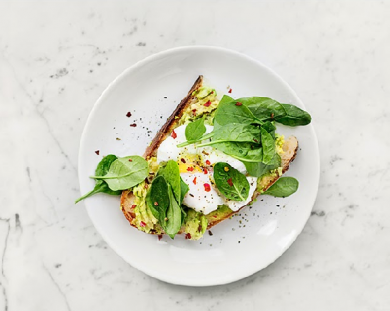
Eat organic!
Although the choices are limited in Bangkok and eating organic is definitely more expensive, research shows that eating organic when you can definitely helps. There have been several studies on the effects of eating organic foods verses non-organic. One study shows that after eating a diet of mostly organic foods for only one week, the levels of pesticides found in urine samples went down by 90%! Finding authentic organic food in Bangkok can be a challenge, so I find it best to try and follow the Clean 15 and Dirty Dozen list which is updated annually by EWG. Information can be found on this website: https://www.ewg.org/foodnews/dirty-dozen.php.
Eat a good quality protein but not too much
We all need adequate protein, but eating too much of it or poor quality meat and fish can put more strain on the liver. Choose wild-caught fish or grass-fed meats and stick to about a palm size amount with each meal instead of making it the larger portion on your plate. Eating organic liver (beef, chicken, goose and duck are all great choices) can actually help your own liver in the detoxification process as well. Paleo Robbie is the best online source I have found for grass fed meats and wild fish. El Mercado also sells
Glorious greens
Eating a diet rich in bitter greens such as arugala, kale, watercress, dandelion root, collard greens, Swiss chard, and mustard greens is extremely beneficial to
Useful supplements:
• Vitamin C
• B Complex
• Zinc
• Magnesium
• Selenium
• Glutamine
• Vitamin A
• Vitamin E
Botanicals:
• Milk thistle
• Curcumin
• Dandelion root
It is important to work with a professional when supplementing with vitamins and minerals to make sure that you are taking the right dosage. Treating yourself by guessing or looking at the internet can be harmful to your health.
Foods to limit:
We all know that we should be avoiding these foods, but starting slow with small steps can bring the biggest changes to our health.
Coffee – can be replaced or mixed with Teechino or Dandy Blend. I love Teechino’s dark roast tea – it tastes like coffee and can actually be combined with coffee while weaning yourself off of caffeine or just to help reduce the amount of caffeine daily. You can buy it from iHerb.com
Alcohol – try reducing your intake to one glass less each night or having a drink only 3 times a week if you drink every day now and see how you feel. If you normally only drink at the weekends, have 2 glasses of alcohol instead of 3. Your liver will thank you!
Fried foods – limit to once a week
• High fructose corn syrup
• Processed and refined carbohydrates – hello Dunkin Donuts!
• Foods with preservatives (usually found on the shelves in the middle of the supermarket)
• Artificial sweeteners such as Equal
Choose to buy organic cleaning products for your home – Sustaina has quite a few to choose from that are affordable. You can find dish soap, laundry detergent, hand soap, shampoos and conditioners, and even natural feminine products are sold here. They are also a great source of organic vegetables. When it comes to what you put on your skin – be fussy! This is just as important as what you are putting in your mouths. Bangkok Soap Opera and Siam Botanicals are my favourite local vendors for face wash, face oils, scrubs, serums, essential oils, perfumes and body lotion. They smell good and feel amazing on your skin.
Takeaways:
Food
• Eat organic foods when possible – follow Dirty Dozen list by EWG
• Foods to always purchase organic: tree fruits, leafy greens, berries & dairy
• Limit/avoid shark, swordfish, king mackerel, or tilefish as they contain high levels of Mercury.
• Avoid charred foods –
• Do not heat foods in plastic containers in the microwave.
Water
• Home water source – ask the water company for testing results or if you have a well, test your water. Additional filtration may be needed.
• Carry water in a stainless steel or glass bottle.
• Do not reuse disposable plastic water bottles.
Every day toxins
• Cosmetics
• Toiletries
• Cleaning supplies
• Gardening chemicals
• Furniture, clothing, carpeting
• Gasoline
• Car
Anti-nutrients
• Medications
• Heavy metals
• Stress
• Chemicals
• Parasites
• Yeast
• Unhealthy mental states
• Isolation
• Nature deprivation
• Negative emotions
Other lifestyle recommendations:
Adding plants to your home and office: spider plants, philodendron, and golden pothos are great for removing formaldehyde (commonly found in facial tissues, grocery bags and paper towels ), while
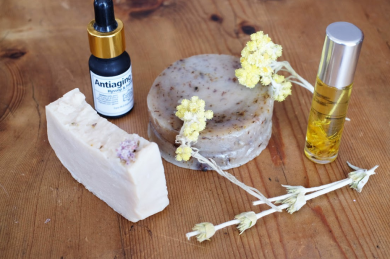
Use natural skin products:
Oxybenzone and methoxycinnamate are some of the common endocrine disruptors found in sunscreens. A safer choice would be a
The Dirty Dozen – Cosmetic Chemicals to Avoid https://davidsuzuki.org/queen-of-green/dirty-dozen-cosmetic-chemicals-avoid/
Other things that can help rid our body of unwanted toxins:
Saunas, exercise – breaking a sweat will help to rid your body of unwanted toxins
Epsom salt baths – these are great to use both for relaxing before bed at night and to help draw out toxins.
Air filters – placing one in each bedroom is usually necessary because of the small area covered by one unit.
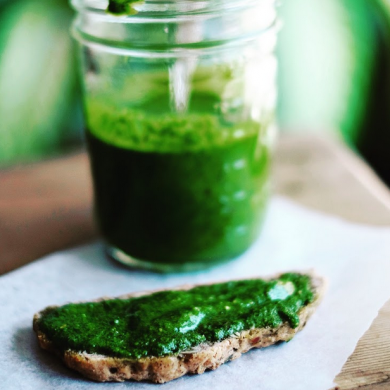
Recipe for detox pesto
INGREDIENTS
• 3⁄4 cup extra virgin olive oil
• 1 bunch fresh cilantro, washed and dried, ends clipped
• 1 bunch fresh basil, washed and dried
• 2 tablespoons watercress
• 1⁄4-1/3 pine nuts, cashews or walnuts (optional)
• 1 fresh lime, juiced
• 1-2 garlic cloves, minced
• Sea salt to taste
DIRECTIONS
Blend all the ingredients together. I find it easier to start with the olive oil at the bottom and then add all the other ingredients. This pesto can be used as a spread on toast, a veggie dip or as a sauce for cooked chicken or fish. *This pesto is a perfect addition to your meals. It is both immune boosting and cleansing! The cilantro will help escort heavy metals out of your body and the garlic, a natural anti-viral and anti-bacterial will help to boost your immune system.
Sources:
American Liver Foundation,
Bennett,
10 Easy Ways To Love Your Liver. Retrieved from https://drchristianson.com/10- easy-ways-to-love-your-liver/
Fry, M. (2017) What isn’t in your food is just as important as what is! Retrieved fromhttp://ahealthystateofmind.com/non-toxic-foods-and-promoting-detoxification/
Lipski, L. (2017) Module 3: detoxification resources. [Lecture].
Retrieved from https://learn.muih.edu/courses/5820/pages/ module-3-detoxification-resources? module_item_id=141758.
Mahan, L.K. & J.L. Raymond. (2017). Krause’s food and the nutrition care process (14th ed). St Louis, MO: Elsevier.
Murray, Pizzorno, Pizzorno, Encyclopedia of Healing Foods Oates, L., Cohen, M., Braun, L., Schembri, A., & Taskova, R. (2014). Reduction in urinary organophosphate pesticide metabolites in adults after a week-long organic diet. Elsevier Environmental Research,132(July), 105-111.
Retrieved from http://doi.org/10.1016 /j.envres.2014.03.021
Pizzorno, J. E. (2017). The toxin solution: how hidden poisons in the air, water, food, and products we use are destroying our health–and what we can do to fix it. New York, NY: HarperOne.
Suzuki, D. (2010, Oct.). Backgrounder. The “Dirty Dozen” Ingredients Investigated in the David Suzuki Foundation
Survey of Chemicals Used in Cosmetics. Retrieved from http://www.davidsuzuki.org/issues/downloads/Dirty-dozen-backgrounder.pdf
Wolverton, B.C., John, A., & Bounds, K. (1989). Interior landscape plants for indoor air pollution abatement,
NASA, http://ntrs.nasa.gov/archive/nasa/casi.ntri.nasa. gov/19930073077.pdf http://www.cdu.gov/exposurereport/


